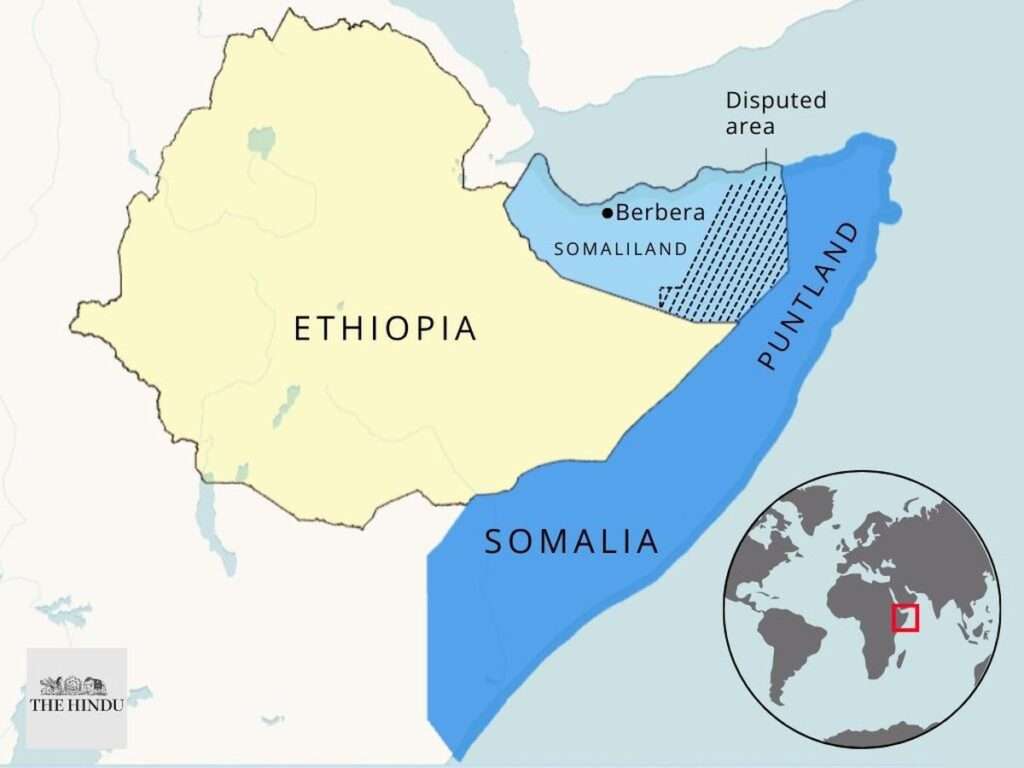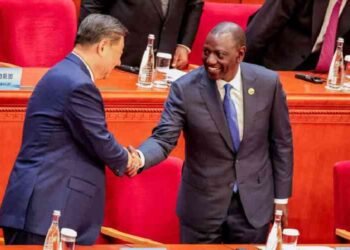Turkish President Recep Tayyip Erdogan announced that Somalia and Ethiopia have signed a landmark agreement to resolve their long-standing dispute over the breakaway Somaliland region and Ethiopia’s quest for sea access.
Speaking during a joint news conference in Ankara, Erdogan praised Somali President Hassan Sheikh Mohamud and Ethiopian Prime Minister Abiy Ahmed for their “historic reconciliation.”
“This joint declaration focuses on the future, not the past, and records the principles that these two friendly countries, which are very important to us, will build from now on,” Erdogan later shared on social media.
The agreement is being lauded as a critical step towards fostering peace and cooperation in the Horn of Africa, a region long plagued by political and territorial disputes.
Erdogan expressed hope that the deal would pave the way for Ethiopia, the world’s most populous landlocked country, to achieve its goal of gaining sea access.
“I believe with the meeting we had today, especially with Ethiopia’s demands to access the sea, my brother Sheikh Mohamud will give the necessary support for accessing the sea,” Erdogan stated.
Ethiopia and Somalia have faced escalating tensions since Ethiopia reached a controversial deal in January with Somaliland, Somalia’s self-declared independent region.
That agreement involved leasing Somaliland’s coastline for an Ethiopian port and military base in exchange for diplomatic recognition — a move Somalia strongly opposed, branding it a violation of its sovereignty.
The dispute quickly raised international concerns, drawing in Ethiopia’s rivals, including Egypt and Eritrea, and stoking fears of renewed conflict in the region.
The central issue in the conflict remains Somaliland, which declared independence from Somalia over three decades ago but is not recognized by the African Union or United Nations. While Somaliland has established a relatively stable political environment, Somalia continues to view the territory as an integral part of its sovereign domain.
Over the years, Somaliland’s stability has stood in stark contrast to Somalia’s struggles with insecurity and frequent al-Shabab insurgent attacks.

Key Terms Of The Agreement
The text of the agreement, released by Türkiye, emphasizes cooperation and mutual benefit. Both parties pledged to “leave behind differences of opinion and contentious issues, and resolutely move forward in cooperation towards common prosperity.”
Significantly, Somalia and Ethiopia agreed to establish commercial arrangements ensuring Ethiopia’s “reliable, safe, and sustainable access” to the sea, while maintaining Somalia’s sovereign authority over its territories.
The agreement outlines technical talks to commence before the end of February and be completed within four months. Continuing disputes are to be resolved through dialogue, with Türkiye offering mediation support if necessary.
Speaking through a translator, Ethiopian Prime Minister Abiy said the agreement marked a new chapter. “We have addressed the misunderstandings that have occurred over the past year,” he stated.
“Ethiopia’s desire for secure access to the sea is a peaceful venture and will benefit our neighbors. It is a venture that must be seen in the spirit of cooperation, not suspicion.”
Ethiopian Prime Minister Ahmed Abiy
Somali President Mohamud echoed these sentiments, affirming his country’s commitment to collaboration. “This agreement has put a halt to our differences. Somalia is ready to work with the Ethiopian leadership and the Ethiopian people,” he said.
Türkiye has played a central role in mediating between the two nations, initiating talks as early as July to address their differences. This latest agreement represents the most significant progress yet in efforts to de-escalate tensions and promote regional stability.
Erdogan described the deal as “the first step towards a new beginning based on peace and cooperation between Somalia and Ethiopia,” expressing optimism for further advancements in their relationship.
As technical talks begin and diplomatic efforts continue, the international community will closely monitor how Somalia and Ethiopia navigate this complex agreement. If successful, the deal could serve as a model for resolving similar disputes in the region, promoting cooperation over conflict in the Horn of Africa.
READ ALSO: Prof. Asare Calls for Decentralization Reform, Cites Administrative Inefficiencies





















